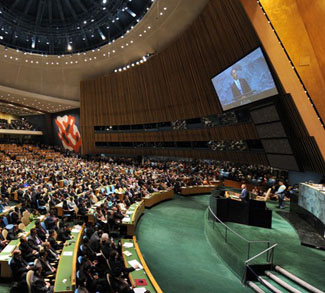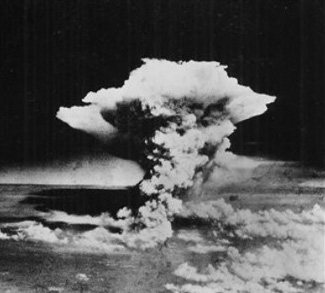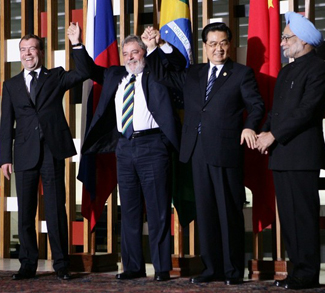Here are a few trends to expect from the 65th UN General Assembly, currently being held at UN headquarters in New York.
The General Assembly can be characterized as the height of style over substance in international diplomacy. The universal attendance and non-binding nature of the resolutions tabled make the event more about sending messages and grabbing the spotlight than actually making progress on pressing international issues. The non-binding BRIC countries resolution on Iran serves as a good example of the General Assembly being used to send a signal. However, the event does serve an important purpose as an opportunity for delegates to get together and make progress on bilateral or regional issues in side-meetings away from the assembly floor.
President Obama opened the week-long summit with a speech stressing the need for world leaders to support ongoing negotiations between Israel and the Palestinians. Of course, President Obama’s pleas are somewhat moot given the fact that the success of Israeli-Palestinian negotiations hinges on the extension of a settlement building moratorium, and not the machinations of the UN General Assembly.
According to the BBC, progress on a variety of pressing international issues may be made on the sidelines of the Assembly. These issues include “Peace-keeping in Somalia, the possible break-up of Sudan, the conflict in Yemen, climate change and UN reform.”
The New York Times is reporting that Iran will seek a seat on the International Atomic Energy Association (IAEA).
It’s also possible that the simmering Sino-Japanese conflict may take center stage at the General Assembly. Both sides seem unwilling to step down, and rumors are swirling that a government-sanctioned boycott of Japanese products may be Beijing’s next move.
Zachary Fillingham is a contributor to Geopoliticalmonitor.com




